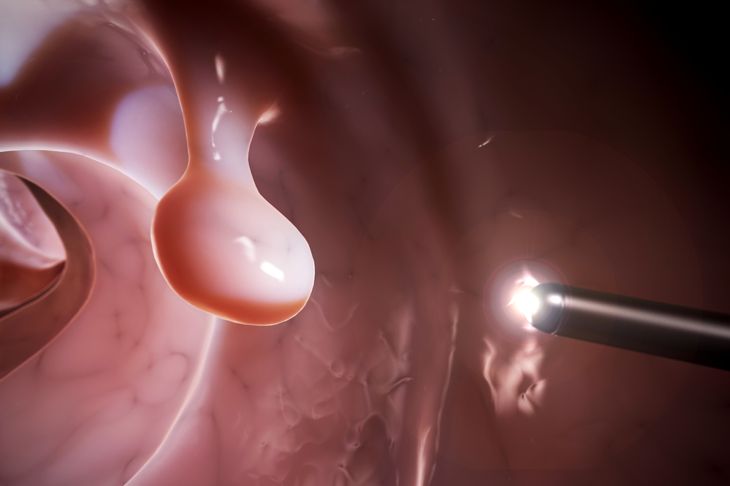Magnesium is a trace mineral and micronutrient used by every organ system in your body. It is vital to cardiovascular function, large muscle control, and the adrenal system. Magnesium is responsible for more than 300 biochemical reactions in the body and has an impact on immune function, metabolism, and bone health; the bones store about 60 percent of all magnesium reserves. Experts estimate up to 50% of people do not get enough magnesium in their diet. A lack of this vital mineral causes a range of symptoms.
Hearing Problems
According to new research, eating foods rich in antioxidants and magnesium can help protect your hearing. For many, hearing loss isn’t noticeable in the early stages. A person may need to sit a little closer to someone to hear what they are saying or experience more interference from background noise than before. A lack of magnesium may decrease hearing health; individuals benefit less from the mineral’s neuroprotective and vasodilatory effects.
Weak or Brittle Bones
Nearly two-thirds of the magnesium the body needs is stored in the bones and a lack will negatively impact bone strength and density. This, in turn, makes the skeleton more prone to fractures and increases the risk of developing osteoporosis. People who are already in high-risk categories, such as post-menopausal women, need to be especially conscious of magnesium intake.
Migraine Headaches
Migraine headaches have many causes, of which a magnesium deficiency is one. Research shows people prone to migraines have low levels of serum and tissue magnesium, and several studies indicate a correlation between magnesium deficiency and the onset of migraine headaches. Many people find stress increases their risk of getting a migraine, and as stress lowers magnesium levels, the triggers could be connected.
Chronic Fatigue
Magnesium deficiencies can cause extreme exhaustion and constant tiredness because the nutrient has a critical role in regulating energy levels. The mineral’s interaction with more than 300 enzyme systems means a lack of magnesium interrupts protein synthesis, muscle and nerve functions, and blood pressure, all of which are essential to energy production. In addition, magnesium deficiency is linked with potassium deficiency in up to 50% of cases. Low potassium also causes fatigue and weakness.
Eye Twitches and Muscle Cramps
Short bursts of twitching in an eyelid happen to nearly everyone, and they may indicate a need for more magnesium. The trace mineral facilitates nerve connectivity, and a lack causes distorted nerve connections, resulting in twitches. Numbness, tingling, and cramping are most frequently experienced in the limbs but can affect any part of the body. Some people with magnesium deficiencies begin noticing these symptoms after exercise or exertion. If the deficiency worsens over time, tingling or cramping may occur during inactivity as well, including while asleep.
Tumors or Cancerous Growths
Studies suggest people with high levels of magnesium have a reduced risk of developing tumors. For one thing, consistent intake of magnesium is required to pass bowel movements regularly, and interruptions in this process are linked to colorectal cancer. Low levels of magnesium can also lead to health concerns for cancer patients who require intensive care. Some research links a lack of magnesium to more severe cancer progression. However, studies looking at magnesium and cancer incidence are inconsistent. The exact role that magnesium plays in cancer incidence and progression is still unclear.
Restless Legs Syndrome
Restless legs syndrome (RLS) or Willis-Ekbom disease is a nervous system condition that causes an overpowering need to repeatedly move the legs (and sometimes the arms) to either reduce or stop distracting sensations in the limbs. A small study found magnesium deficiency could cause restless leg syndrome. In the study, the mineral was also found to improve insomnia brought on by RLS.
Intense PMS Symptoms
Although most menstruating women experience a wide range of PMS symptoms, such as breast tenderness, bloating around the abdomen, mood swings, and headaches, many women find their symptoms are more intense when they lack magnesium. There is a clear link between magnesium and PMS relief. Doctors may prescribe magnesium supplements to women who experience severe pain and other issues during menstruation.
High Blood Pressure
A healthy blood pressure reading is typically 120/80 or lower; as the numbers increase, the heart and blood vessels are under increased amounts of stress. High blood pressure can damage the blood vessels in the eyes, impacting sight, in addition to increasing the risk of heart attack, stroke, and chronic heart disease. Several studies indicate that magnesium deficiency may cause or contribute to high blood pressure.
Irregular Heartbeat
Magnesium is also critical in maintaining normal heart rhythm, partially due to its impact on potassium, another mineral needed for healthy heart function. Magnesium is linked to reductions in the risk of congestive heart failure and may help increase survival rates after a heart attack. These results suggest a lack of magnesium could exacerbate palpitations and irregular heartbeat. While most arrhythmias are not harmful, some heart rhythm changes can increase the risk of blood clots or even cause sudden death. Maintaining healthy magnesium levels may reduce the likelihood of these dangerous blockages.

 Home
Home Health
Health Diet & Nutrition
Diet & Nutrition Living Well
Living Well More
More




















